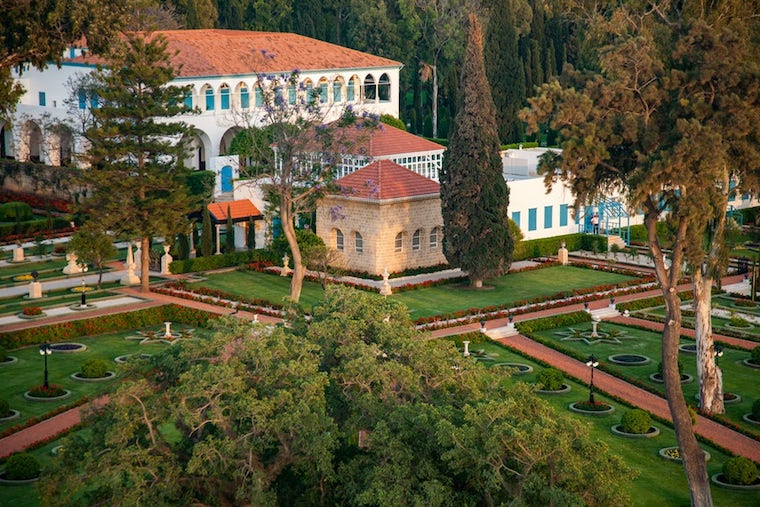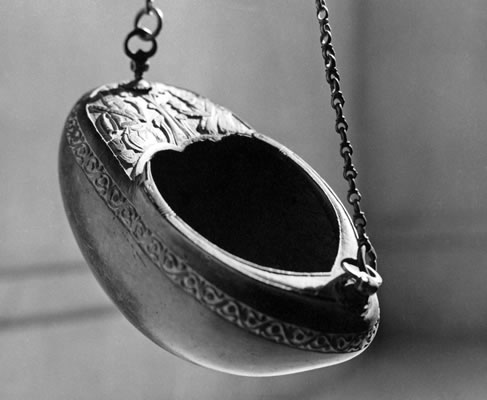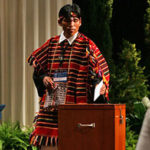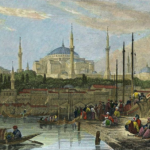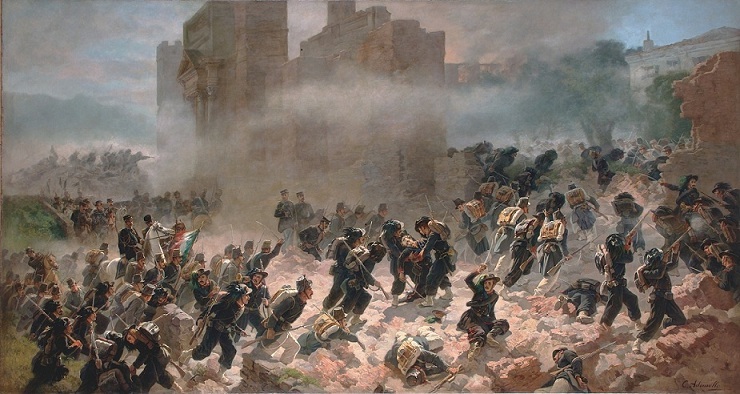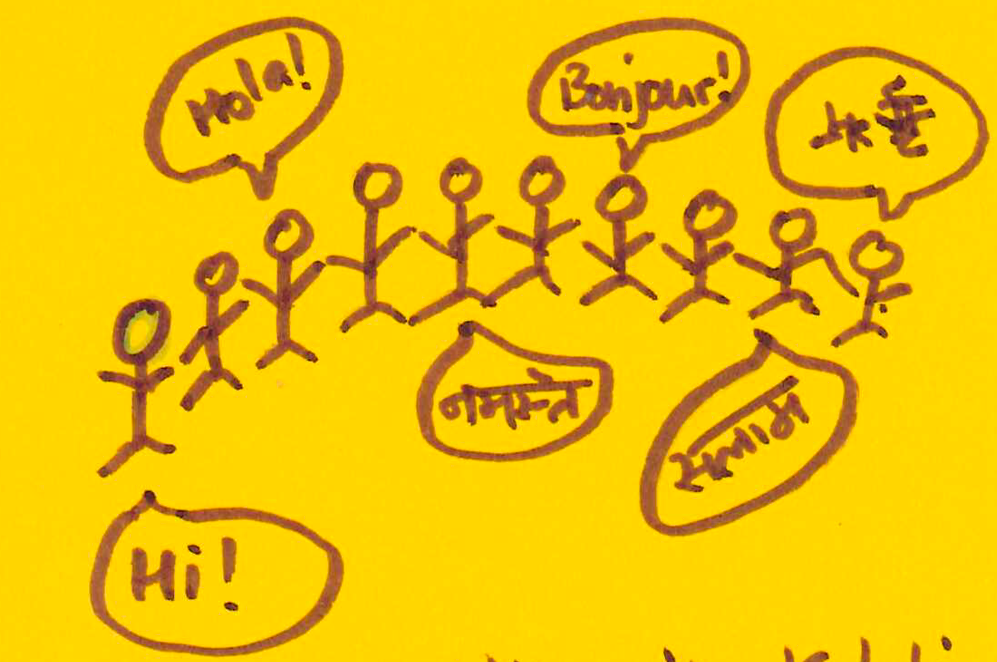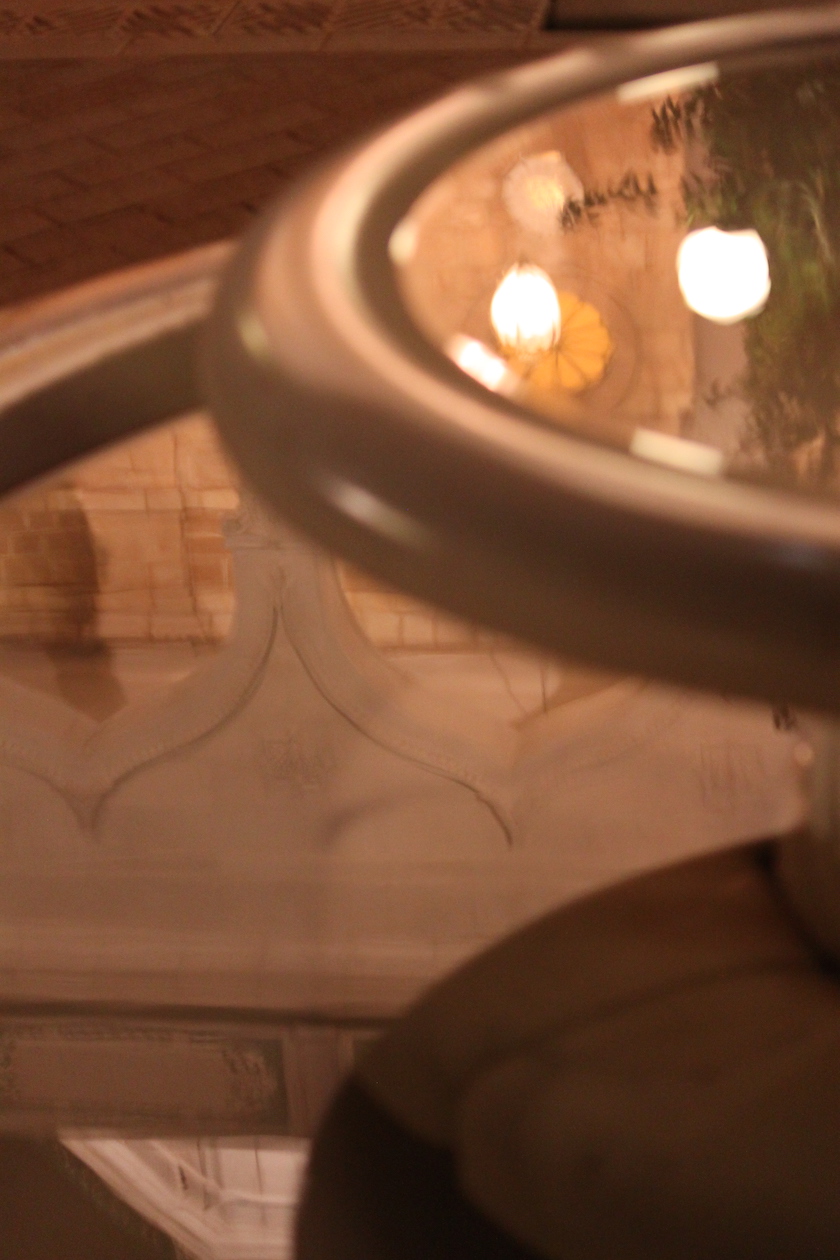
Bahá’u’lláh’s Message to Christians
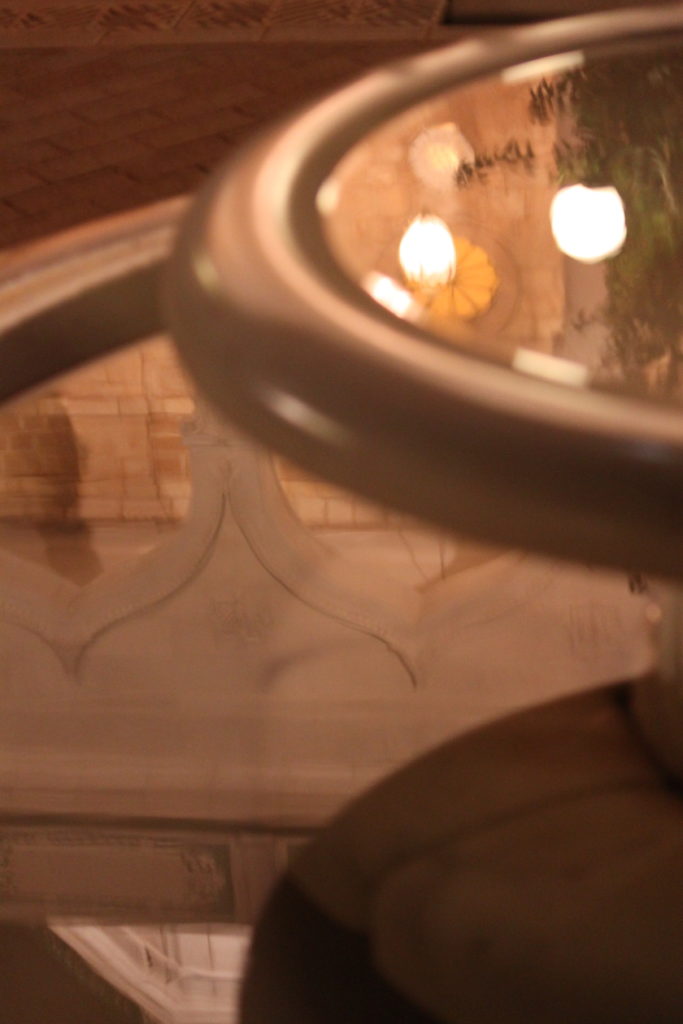 The Lawh-i-Aqdas – the Most Holy Tablet – is addressed to Christians. Bahá’u’lláh announces his mission to the followers of Christ. Almost at its outset, the call is made:
The Lawh-i-Aqdas – the Most Holy Tablet – is addressed to Christians. Bahá’u’lláh announces his mission to the followers of Christ. Almost at its outset, the call is made:
O followers of the Son! Have ye shut out yourselves from Me by reason of My Name?[1]
These words allude to passages such as the following from the Bible.
The nations will see your vindication, and all kings your glory; you will be called by a new name that the mouth of the Lord will bestow.[Isaiah 62:2]
To him who overcomes, to him I will give … a new name written on the stone which no one knows but he who receives it. [Revelations 2:17]
As we explore this message we might recall that as he left Adrianople, Bahá’u’lláh noted something special about Christians. Referring to the peoples’ weeping over his suffering he writes:
We perceived that the weeping of the people of the Son exceeded the weeping of others—a sign for such as ponder.[2]
The Lawh-i-Aqdas continues as a summons to the people of Christ.
Bahá’u’lláh recalls events at the time of Jesus as recorded in the Gospels – highlighting that the same pattern has recurred in our own day.
No one from among them turned his face towards the Dayspring of divine bounty except such as were destitute of any power amongst men. And yet, today, every man endowed with power and invested with sovereignty prideth himself on His Name. Moreover, call thou to mind the one who sentenced Jesus to death. He was the most learned of his age in his own country, whilst he who was only a fisherman believed in Him. Take good heed and be of them that observe the warning.[3]
Again emphasising the pattern of “return”, Bahá’u’lláh draws attention to the recurrence of the mission of John the Baptist in the mission of the Bab (Bahá’u’lláh’s forerunner).
Say, did ye not hearken to the Voice of the Crier, calling aloud in the wilderness of the Bayán, bearing unto you the glad-tidings of the coming of your Lord, the All-Merciful?[4]
These words draw attention to the words of John the Baptist as recorded in the Gospel when asked who he was.
Finally they said, “Who are you? Give us an answer to take back to those who sent us. What do you say about yourself?” John replied in the words of Isaiah the prophet, “I am the voice of one calling in the wilderness, ‘Make straight the way for the Lord.’ ” [John 1:22-23]
The Bab had a very similar mission in relation to Bahá’u’lláh.
Among the Biblical allusions made by Bahá’u’lláh is the following.
Say, this is the One Who hath glorified the Son and hath exalted His Cause.[5]
These words allude to a passage in the Gospel of John concerning the “Spirit of Truth”.
“I have many more things to say to you, but you cannot bear them now. But when He, the Spirit of truth, comes, He will guide you into all the truth; for He will not speak on His own initiative, but whatever He hears, He will speak; and He will disclose to you what is to come. He will glorify Me, for He will take of Mine and will disclose it to you.” [John 16:12-14]
And indeed Bahá’u’lláh explicitly states that he is the Spirit of Truth promised by Jesus to his followers.
Verily, He Who is the Spirit of Truth is come to guide you unto all truth. He speaketh not as prompted by His own self, but as bidden by Him Who is the All-Knowing, the All-Wise.[6]
And Bahá’u’lláh does, in fact, glorify Jesus.
Know thou that when the Son of Man yielded up His breath to God, the whole creation wept with a great weeping. By sacrificing Himself, however, a fresh capacity was infused into all created things. Its evidences, as witnessed in all the peoples of the earth, are now manifest before thee. The deepest wisdom which the sages have uttered, the profoundest learning which any mind hath unfolded, the arts which the ablest hands have produced, the influence exerted by the most potent of rulers, are but manifestations of the quickening power released by His transcendent, His all-pervasive, and resplendent Spirit.
We testify that when He came into the world, He shed the splendor of His glory upon all created things. Through Him the leper recovered from the leprosy of perversity and ignorance. Through Him, the unchaste and wayward were healed. Through His power, born of Almighty God, the eyes of the blind were opened, and the soul of the sinner sanctified.
Leprosy may be interpreted as any veil that interveneth between man and the recognition of the Lord, his God. Whoso alloweth himself to be shut out from Him is indeed a leper, who shall not be remembered in the Kingdom of God, the Mighty, the All-Praised. We bear witness that through the power of the Word of God every leper was cleansed, every sickness was healed, every human infirmity was banished. He it is Who purified the world. Blessed is the man who, with a face beaming with light, hath turned towards Him.[7]
Moreover, we may note that the concept that Jesus’ hearers “could not bear” at that time what he wished to say to them, is affirmed in Bahá’u’lláh’s teaching of progressive revelation: that religious truth is progressively revealed to humanity in accordance with the conditions and capacities of the people of the time.
Among the many thousands of Christians who have accepted the truth of Bahá’u’lláh as fulfilling their own religious teachings, and thus become Baha’is, is the beautiful example of George Townshend.
(This article is the 182nd in a series of what I hope will be 200 articles in 200 days for the 200th anniversary of the birth of Bahá’u’lláh. The anniversary is being celebrated around the world on 21 and 22 October 2017, The articles are simply my personal reflections on Bahá’u’lláh’s life and work. Any errors or inadequacies in these articles are solely my responsibility.)
Image Credits: Reflections: The Shrine of the Bab. With thanks to Kath Podger.
